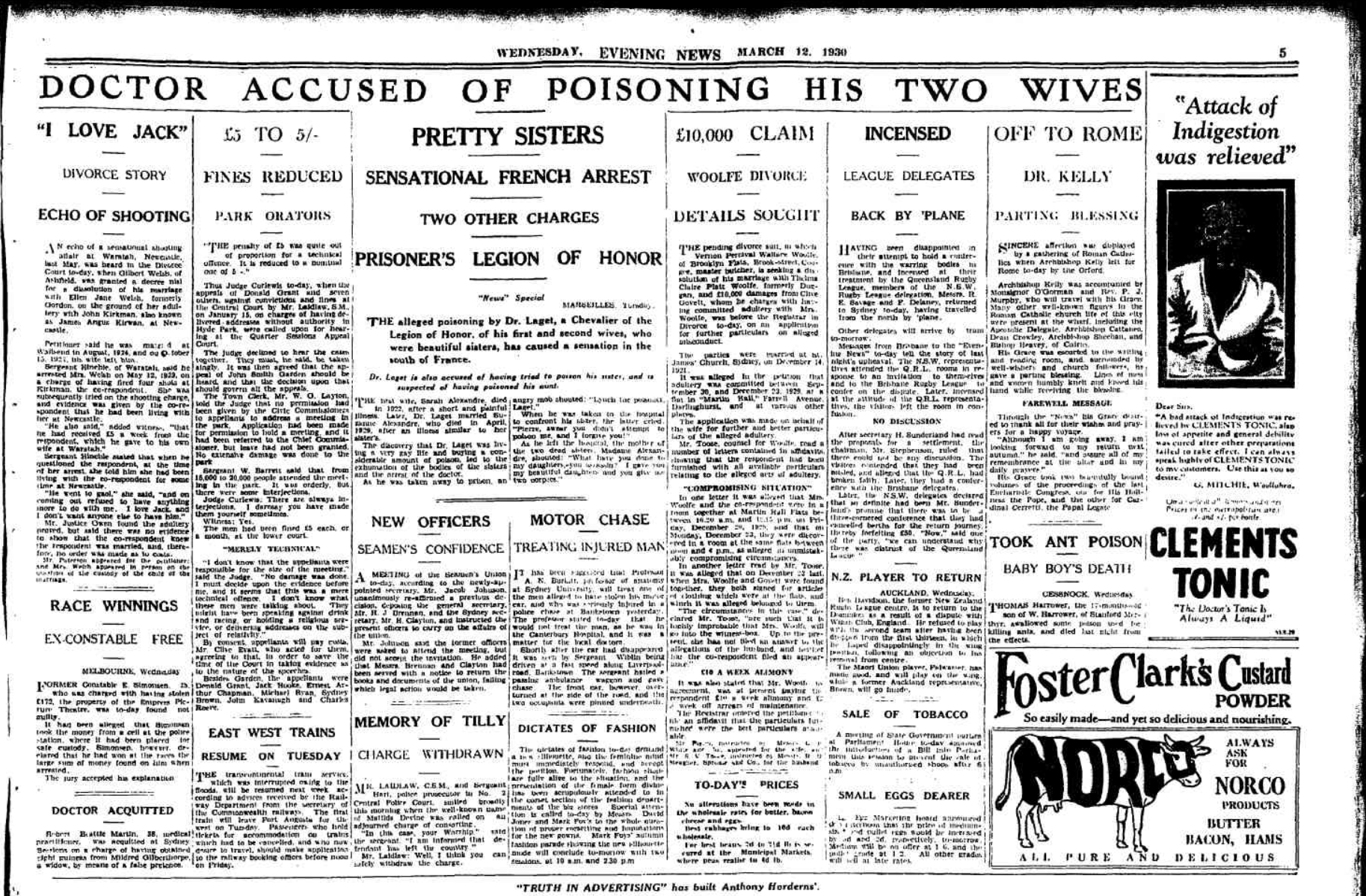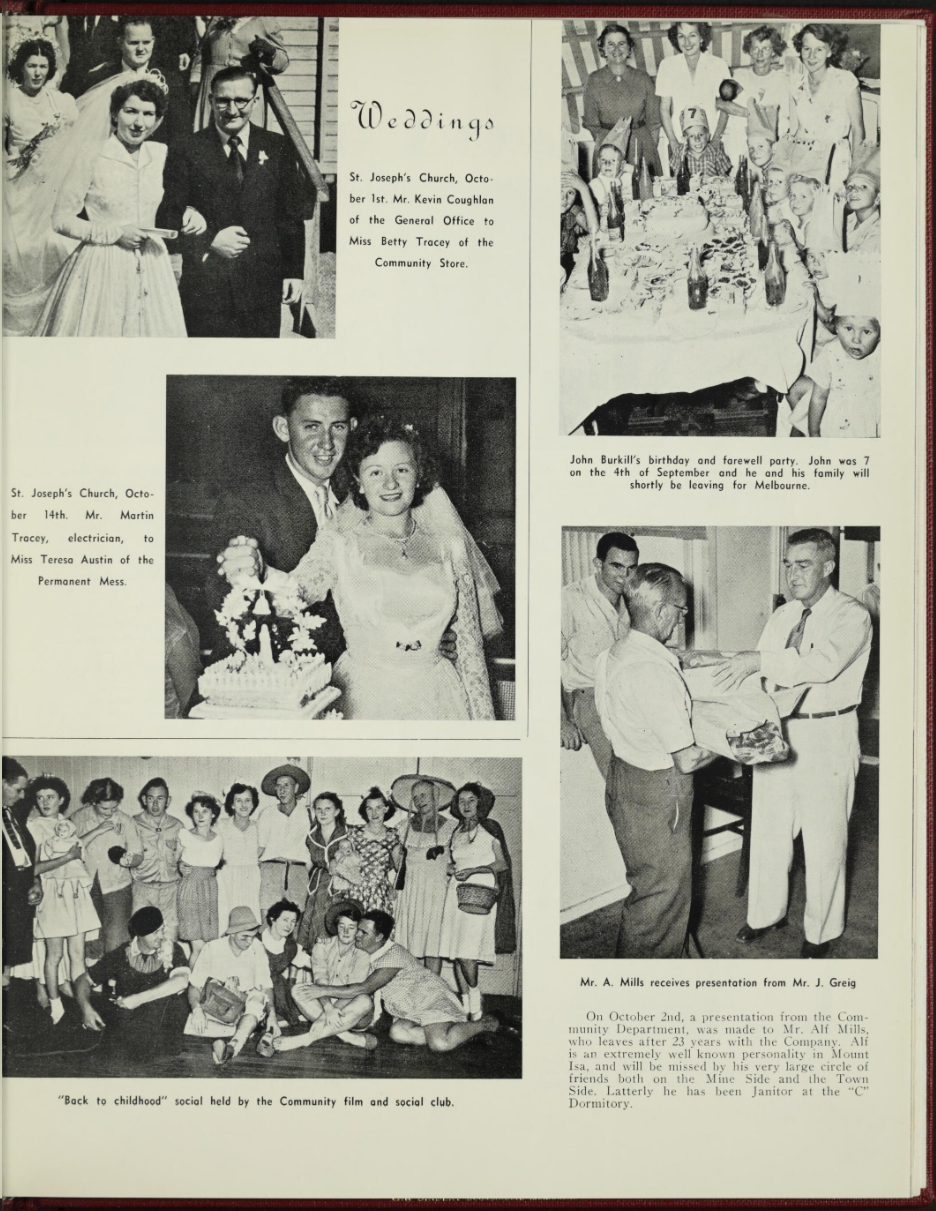
Unlocking family secrets
Every family has secrets. We might assume the stories we know about our families are inherited from past generations. Parents and grandparents tell tales around the dinner table and on long trips. We overhear a hushed conversation or catch gossip from an in-the-know family friend. But very often there are silences in families, information that is forgotten or withheld. When older generations pass away, we realise there are questions we didn’t know to ask, or were too afraid to.
Allison* began research to help her mother find out where her grandmother was buried and how she really died. They couldn’t make progress. Older family members deflected questions, and her grandfather, when asked, got angry. He left the room huffing, “The past is the past and should stay there.” But as Allison writes, “This was all prior to Trove.”
In a 2016 survey I conducted of people researching their family histories, 58 out of the 400 respondents cited Trove as the place they discovered a family secret. Diving into Trove’s rich collections of digitised newspapers, photographs, letters, diaries, and links to research materials around the country, people are finding missing pieces in the family stories that tell us who we are.
Sometimes a simple keyword search can reveal a bombshell.
As Anne writes, “I just did a search for our farm name in Trove and it spiralled out of control from there.” Jenny also wrote that when dates didn’t correspond between family stories and official documents, “I would just type in a relative’s name to see if anything popped up. Newspaper articles were a treasure trove of details about titillating scandals.” But often searches yield small clues that call for more detective work. The family researcher sleuths the trail of an ancestor’s name through Trove’s vast archives, turning up leads, the odd red herring, and sometimes cracking the case.
As responses to my survey show, within Trove people find intimate and emotional details of family lives. And when such discoveries bring new information to light or contradict the well-worn family tale, family mysteries, secrets, and lies begin to unravel.

Betty started researching her family in the 1990s because she wanted to know who her grandparents were and where they came from. She didn’t know then that she would unearth aliases hiding bigamy, desertion, crime, and not one but two secret families. After hitting a brick wall with her maternal grandfather’s past, she gave up for a few years but was re-inspired when a cousin found a mysterious marriage certificate and crime reports for him under a different name. Betty began searching for the alias in Trove and soon uncovered a string of shocking family secrets. “The wealth of information in the newspapers in Trove”, she writes, “has added fabulous detail to the true story.”
Growing up, Betty’s mother and her siblings were told that their father was born in Texas. He said his father was a ranch owner and his mother died when he was young. To escape a cruel stepmother, he and his siblings ran away to Australia, arriving in Fremantle in the late 1890s. As Betty writes, “My grandmother, my mother & her siblings all believed they were half American. During WW2 my Mum had to wear an ‘alien’ identity bracelet because her Dad was not an Australian citizen. We didn’t know any different so we all believed the lie. Whenever my grandfather was asked about his past, he was always reluctant to talk.”
By searching the alias on the marriage certificate, Betty found a vital piece of evidence that confirmed her grandfather’s identity – the court records for his trial and conviction for theft in the 1920s. The records included a handwritten letter from her grandfather, a list of all his known aliases, and details of convictions in three states. The alias and her grandfather had matching birth dates. When she compared a prisoner photograph of her grandfather in the Tasmanian archives with a photograph in the Victorian Police Gazette, she knew “He was one and the same person!” She then uncovered two previous marriages (no divorces) and two unknown daughters, half-sisters to Betty’s mum.
Using Trove, Betty finally found her family’s true origins and searched for her lost relatives, a journey that continues.
She writes: “For me & Mum it has been EXCITEMENT, SORROW & immeasurable JOY all at once. Only 4 children from my grandfather’s 3rd family are still alive. When they heard the news they were astounded, amazed and astonished. They had been so sure that they were part Texan! [...] For me and my Mum it is a HUGE relief to know where my grandfather’s family came from. [...] I was screaming with excitement when a simple family notice in a newspaper on Trove revealed that my great-grandparents had lived in [Western Australia]. I phoned my Mum immediately to share the excitement of finally finding them.”

As Betty explains here, the moment of discovering a family story can be very emotional. It can excite, spark outrage, jerk tears, and inspire deep empathy. Family researchers were sometimes shocked to find secrets about ancestors in Trove. As David writes, “Bloody hell, they weren’t as pure as we were led to believe!” But survey respondents also wrote about the relief of finally knowing the full story.
Little threads of information found in historical documents can untie families and help to stitch them back together. Trove holds the key to the mysteries of our families’ pasts.
* All names have been changed to protect privacy
Ashley Barnwell is a Senior Lecturer in Sociology at the University of Melbourne. Her research focuses on emotions, memory, and narrative. In 2019 she was a Research Fellow at the National Library of Australia. She is currently working on project titled, “Family Secrets, National Silences: Intergenerational Memory in Australia”, funded by the Australian Research Council (DE190100516).